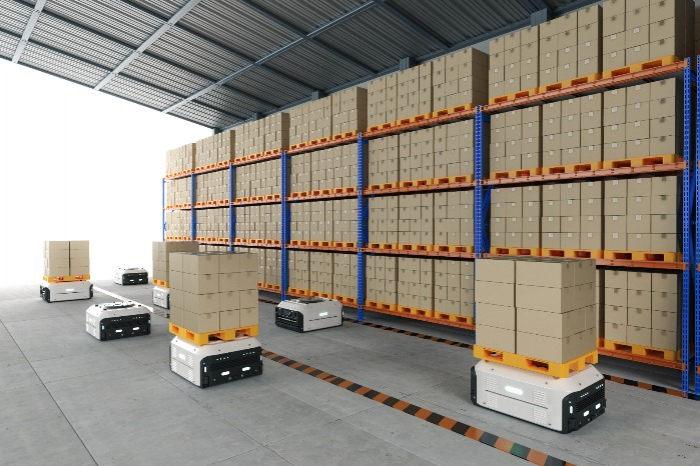Robotics
Korea lags peer nations in robot industry
The country uses more robots than other countries, but it imports a majority of the parts and lacks professionals
By Sep 15, 2022 (Gmt+09:00)
1
Min read
Most Read
LG Chem to sell water filter business to Glenwood PE for $692 million


Kyobo Life poised to buy Japan’s SBI Group-owned savings bank


KT&G eyes overseas M&A after rejecting activist fund's offer


StockX in merger talks with Naver’s online reseller Kream


Mirae Asset to be named Korea Post’s core real estate fund operator



South Korea’s competitiveness in the robot industry is among the world’s lowest even though the country is one of the largest buyers of robots, according to a Sept. 15 report on Korea’s influence in the global robot industry issued by the Federation of Korean Industries (FKI), a business lobby group.
The global industrial and services robot market reached $24.3 billion as of 2020, of which the Korean market accounted for 12.3%, the report said.
Korea uses 932 units of robots per 10,000 workers, more than seven times the global average of 126 units. It also exceeds 390 units in Japan, 371 in Germany, 255 in the US and 246 in China.
But the comprehensive competitiveness of the Korean robot industry was 7.4 on a score of one to 10, lower than Japan’s 9.5, Germany’s 9.3, the US’ 8.4, Switzerland’s 8.3 and China’s 7.5. Korea’s low score comes as it imports a majority of its robot parts from Japan and other countries, the report said.
In the assessment of robot parts production and procurement capabilities, Korea scored 6.7 while Japan earned 9.8. Korea imports 61% of speed reducers and 65% of sub-motors from Japan, according to the report.
A lot of robotics hardware experts are working in software development in Korea as the country particularly lacks talent in robotics software, the report said. The country’s growth in the robot industry is slower than China's, which provides ample subsidies for robotics R&D and proactively acquires global robotics companies, the report added.
Korea must cut its reliance on component imports, as well as promote specialization of each sector in the robot industry and foster professionals, said Kim Bong-man, FKI's international affairs department head. The government also needs to support industry growth with relevant institutions and regulatory reforms, Kim added in the report.
Write to Sang-Eun Lee at selee@hankyung.com
Jihyun Kim edited this article.
More to Read
-
 RoboticsLG, KT join forces to launch next-generation service robots
RoboticsLG, KT join forces to launch next-generation service robotsAug 17, 2022 (Gmt+09:00)
2 Min read -
 AutomobilesHyundai to set up AI robotics R&D center near Boston
AutomobilesHyundai to set up AI robotics R&D center near BostonAug 12, 2022 (Gmt+09:00)
1 Min read -
 RoboticsSamsung Medical Center jobs global top 10 in robot-assisted surgeries
RoboticsSamsung Medical Center jobs global top 10 in robot-assisted surgeriesAug 10, 2022 (Gmt+09:00)
1 Min read -
 Korean startupsWarehouse robotics maker Floatic raises $2.6 million in pre-Series A
Korean startupsWarehouse robotics maker Floatic raises $2.6 million in pre-Series AJul 21, 2022 (Gmt+09:00)
1 Min read -
 RoboticsLG stands out among conglomerates in race to strengthen robotics arms
RoboticsLG stands out among conglomerates in race to strengthen robotics armsJul 15, 2022 (Gmt+09:00)
2 Min read
Comment 0
LOG IN


